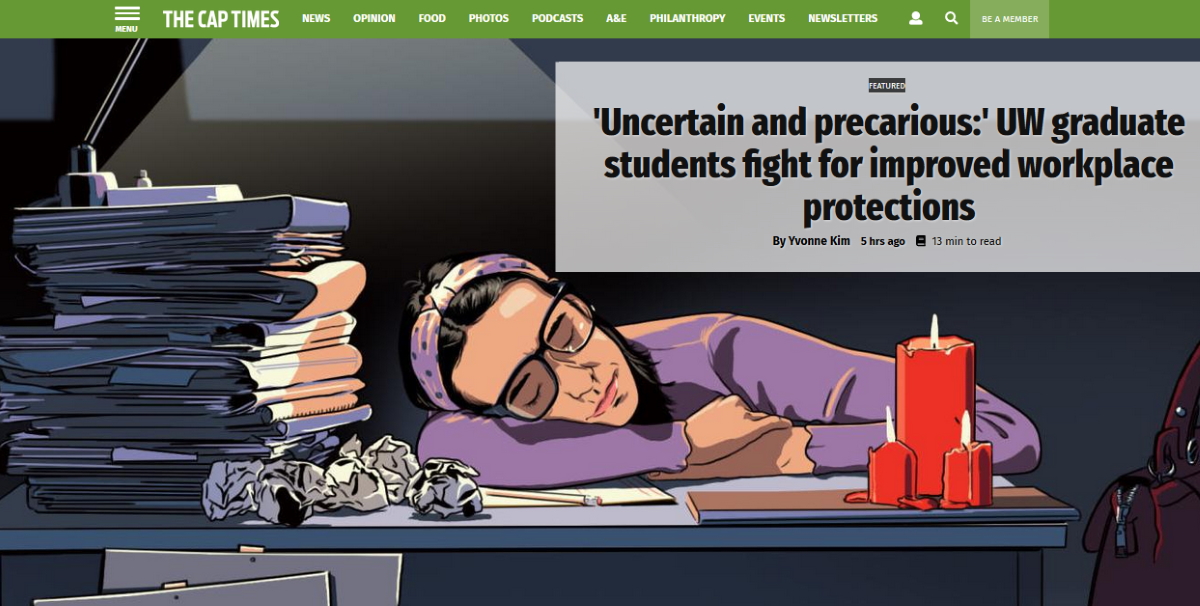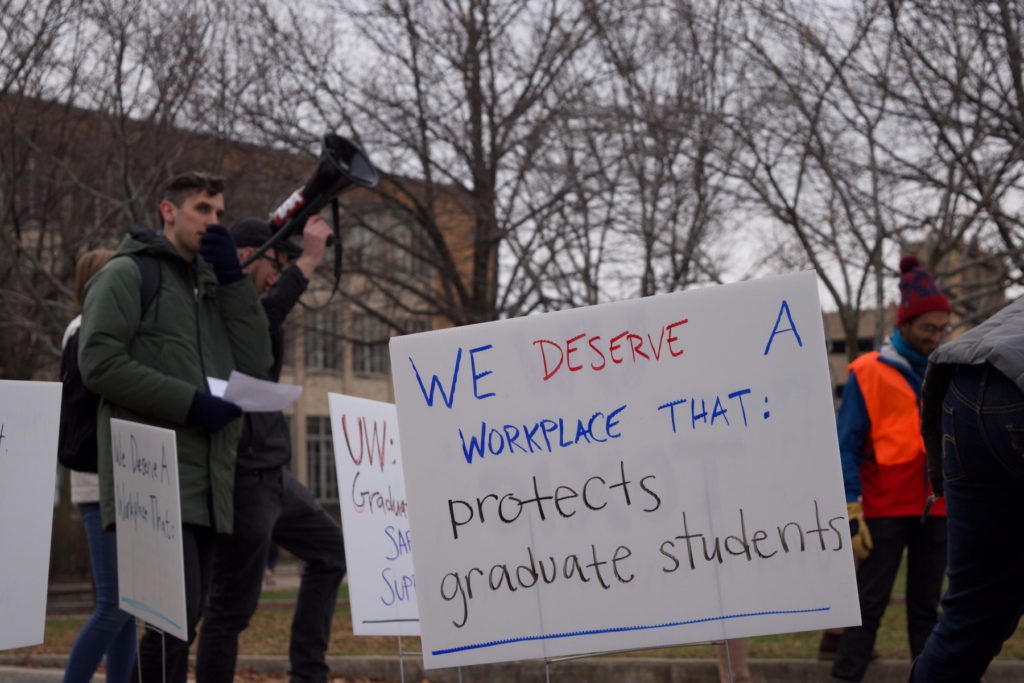Article Features UW Grad Workers’ “Precarious” Conditions


This week’s Cap Times cover story shines a spotlight on UW–Madison graduate workers’ long struggle for quality workplace protections. The article highlights the precarity and stress of working as a graduate assistant, and the fight for new policies and decision-making power. You can also listen to a short podcast, where reporter Yvonne Kim discusses what she learned from talking with graduate workers across campus.
UW–Madison has repeatedly tried to write workers out of policy decision-making processes, and yet grad employees’ activism has secured some important wins. Since Scott Walker’s 2011 Act 10 stripped the TAA’s power to collectively bargain (link to history page), UW–Madison management has increasingly neglected shared governance in favor of unilateral decision-making. For example, the TAA had to fight to be included on the original GAPP committee. Then, after two years of hard work, the completed GAPP document was unilaterally changed by administrators, removing the policies pertaining to research assistants.
… since 2017, the University’s commitment to shared governance and communication with graduate student workers has definitely frayed.
Journalist Yvonne Kim, speaking on the Cap Times Madsplainers podcast
More recently, the TAA learned that new RA policies were being created behind closed doors. Grads demanded access to the decision-making process, winning some important changes like the guarantee of a 40-hour-FTE workweek. The graduate assistant policies now finally in place reflect the flawed process that created them: although we have won important guarantees — including sick leave and a strong grievance policy — serious gaps remain. The TAA calls for the establishment of a standing committee with worker representation to continuously improve workplace policies, a demand management has refused to consider.
Graduate workers live under conditions of real material hardship. In addition to their often precarious, exploitative, or discriminatory working conditions, many grads struggle to simply pay the bills. Despite the recent raises won by TAA members’ activism, the average graduate worker’s salary is thousands of dollars below Madison’s living wage, and grads are still forced to pay 1,500 dollars a year in mandatory fees. The TAA continues to fight on all of these fronts, knowing that when we stand together, we are stronger.
You can join us as we work toward the university UW–Madison students and workers deserve! Start by sharing the Cap Times article with your family, friends and co-workers and talking with them about the issues. Follow us on Facebook, Twitter, and Instagram. And if you’re a graduate worker, it’s time to get involved in your union. Join today!
